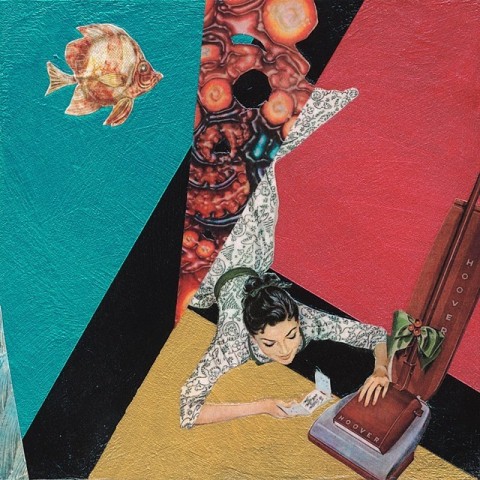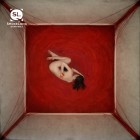Lightbulbs.
Penguins.
Velcro.
Claymation. The moon made out of cheese.
Tap dancing.
Yoga.
Twizzlers. Mountain Dew. Jello. Colors she can eat with her eyes.
Methamphetamine.
Bud Lite.
T-shirts. Thin and soft, they pass from person to person, men to women, each owner slipping into a team—Yankees, Warriors—and out again with no bloodshed, no thought to allegiance or tribe. And the words! Profusions of nonsense. The Weather Is Here, Wish You Were Fine. Chemists Do It on the Table Periodically. Cut Class Not Frogs. Words everywhere and for everyone, for nothing but a joke, for the pleasure of them, a world so careless with its words. And not just on t-shirts. Posters. Water bottles. Newspapers. Junk mail. Bumper stickers. Lists. Top ten Halloween costumes for your dog as modeled by this corgi. Top ten times a monkey’s facial expression perfectly summed up your thoughts on NAFTA. Top ten things your boyfriend wishes you would do in bed but is too afraid to say. Cassandra has not noticed a lack of men telling women what to do. Perhaps this will be a pleasure of the future, a male desire that goes unspoken. A desire that is only a desire, and not a command.
Then there are the small words, the private words, hidden within romance novels, mysteries, thrillers, science fiction, fantasy. Heaving bosoms, astronauts, and ape men. Pulp paperbacks that live brief but fiery lives, the next torrent of words so swift behind they must sell or be destroyed, only enough space on the shelf for the new.
Broadway.
Chekhov.
Klonopin.
Dentistry.
Density.
And lives, of course. Cassandra would rather see only the fictions, the objects, the colored plastic oddities of the future, but she must see lives as well. Here are two little girls. They sit in the dirt and dig at a boulder. When it is finally unearthed, the possibilities! A passage to the underworld, a buried treasure, a colony of fairies—anything but dirt. It is essential that they will never succeed, never dig up the boulder, and of course they don’t. Their plastic shovels move the dirt aside; new dirt, dusty and thin, blows across their eyes, fills the small spaces they’ve made. One of the girls becomes an engineer. One is raped by her college boyfriend. Some visions show nothing new at all. This second girl will run a bakery on an island where she loves to hike. She will have three children, all boys, and she will die when she is quite old and quite unwilling to go. Her boys will have lives too. Everyone does. Lives on fast-forward, silent, even the best life, even her own, swiftly boring.
Cassandra is tired of running at wooden horses with nothing but the flame of the smallest match.
She is tired of speaking to listening ears. The listening ears of the men who think her mad drive her to madness. She wishes they would let her keep her silence or scream her knowledge alone, wishes she could move to an island and own a bird. She will never do this because she knows she never does.
It is said that Apollo gave Cassandra the gift of prophecy—this is true. It is said that, when she refused his advances, he spit in her mouth so that she would never again be believed. A virgin the same as a seduced woman the same as a violated woman the same as a willing woman, all women opening their mouths to watch snakes slither out and away.
Cassandra is done, full the fuck up, soul weary.
Still, as Troy is sacked, as she clings to the statue of Athena in the sacred temple, the marble of the legs cold no matter how tight she holds them, she cannot accept what she knows to be true. That soon, Ajax will arrive and rape her. He will smash the statue of the goddess she worships and curse his own life and worse, her goddess will not help her, will turn her shattered face away. Soon, Cassandra will be carried across the sea, made another man’s concubine, bear twin boys, and be killed by Clytemnestra. But before this comes to pass, there are visions Cassandra burns to share with the women of Troy.
The women of Troy might listen. They know that Cassandra’s curse is their curse as well. That Apollo spit in her mouth, but it was only spit.
Here is what she might show them.
Tampons.
Jeans.
Washing machines.
The cordless Hitachi Magic Wand.
Elastic hair ties.
Mace.
Epidurals.
A woman alone in a room, the door locked and no one expected.
And here is the best thing of all, the thing that makes Cassandra smile as the men storm her temple, exactly as she has always known they would. Someday, Trojan will not be synonymous with bravery or failure, betrayal or endurance, the most beautiful woman or the most foolish men. A Trojan will be carried in every hopeful wallet, pulled out with abashed confidence, slipped over the shaft, rolled to the base as awkwardly as a high school teacher with a banana. Perhaps the Trojan men would laugh if they knew, or be humiliated, or pause to think about the indifference of history and the hubris of the man who hopes to be remembered. But the women, once they saw that blue streamer unfurl, the women would rejoice, would wave it over their heads like a new flag, like a promise of better things to come.

Notes from Guest Reader Brian Oliu
This piece had such a great energy to it—I loved the sprawl of it all, how it unfurled and then circled back on itself to stick the landing. I’m a sucker for lists as well, and I feel like the images used were not just for “images’ sake”—they fit the larger concept of the piece. Also, I mean, the title is just the best thing.


 The core workshop of SmokeLong Fitness is all in writing, so you can take part from anywhere at anytime. We are excited about creating a supportive, consistent and structured environment for flash writers to work on their craft in a community. We are thrilled and proud to say that our workshop participants have won, placed, or been listed in every major flash competition. Community works.
The core workshop of SmokeLong Fitness is all in writing, so you can take part from anywhere at anytime. We are excited about creating a supportive, consistent and structured environment for flash writers to work on their craft in a community. We are thrilled and proud to say that our workshop participants have won, placed, or been listed in every major flash competition. Community works.